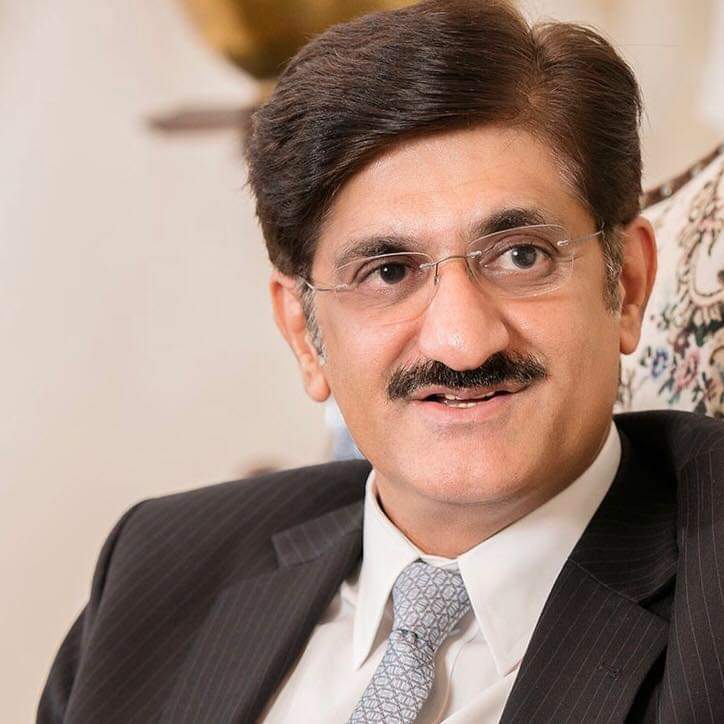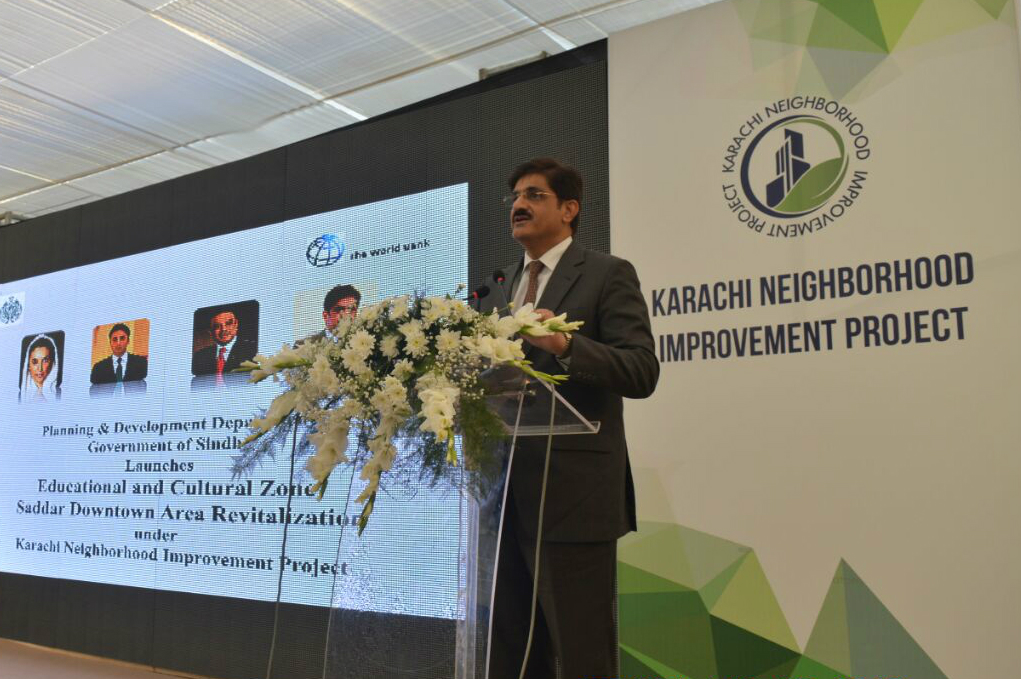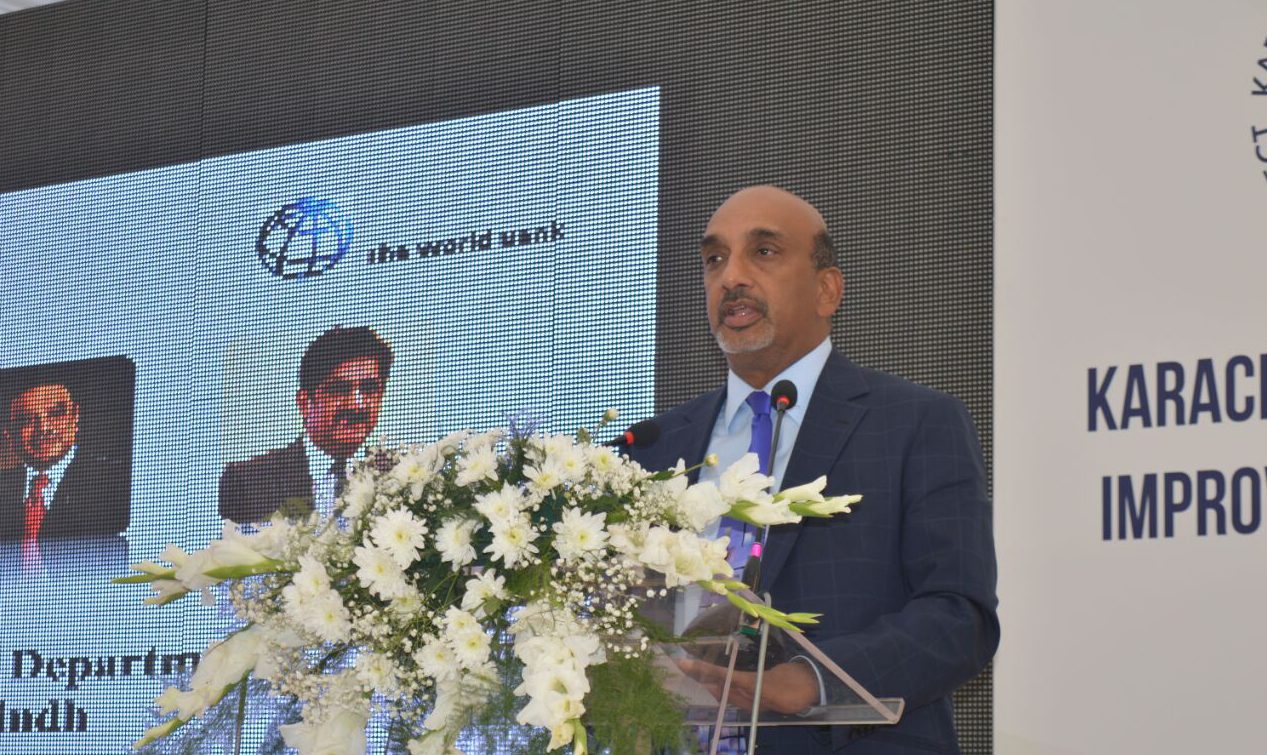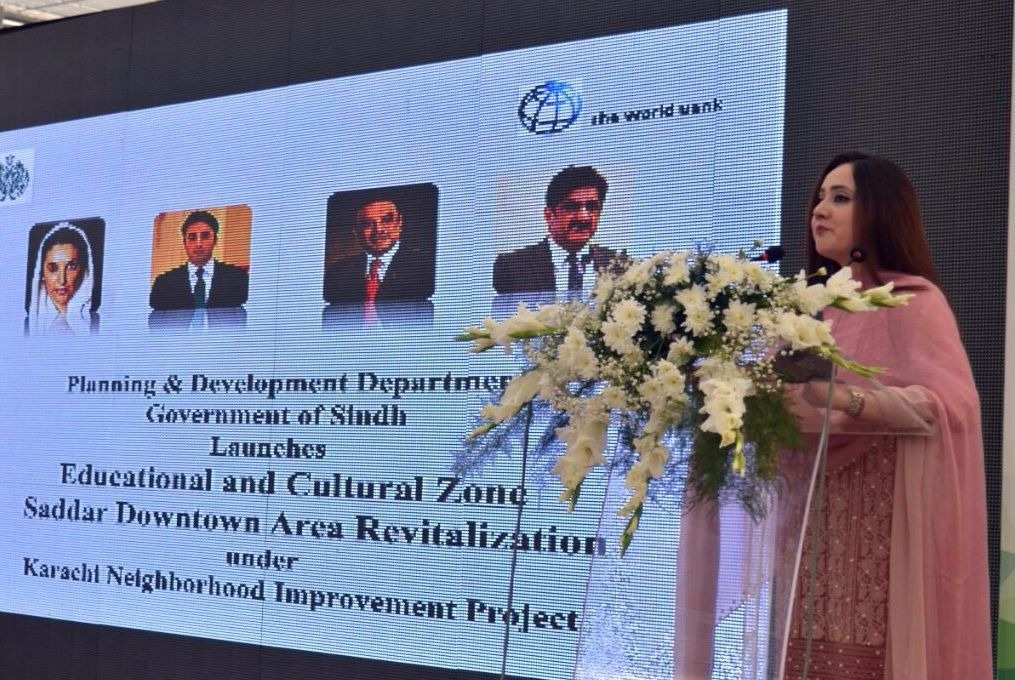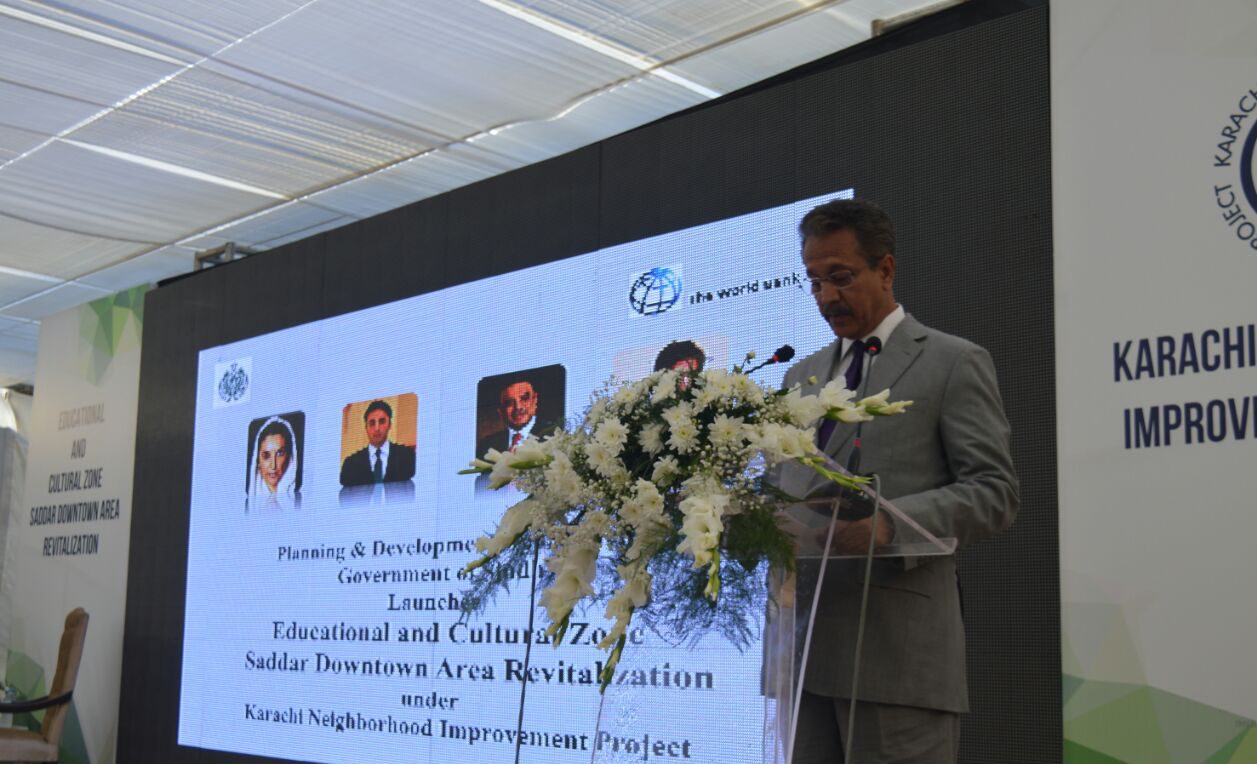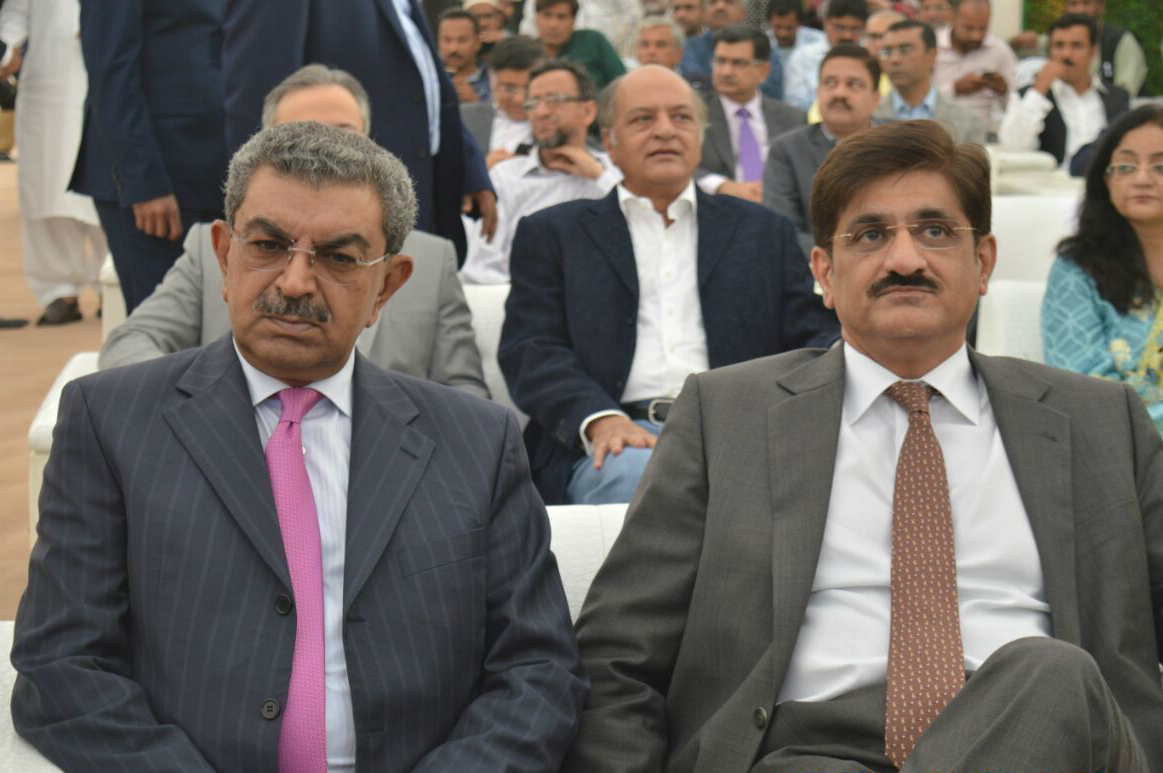Karachi Neighborhood Improvement Project
Our Vision: To transform Karachi into a more Livable, Competent and Productive Mega City.
Recent Projects
Chief Minister Sindh
Syed Murad Ali Shah
I am pleased to write this message for a signature project of Government of Sindh that is striving hard transforming the Karachi into more livable and vibrant city. The Karachi Neighborhood Improvement Project- KNIP was conceived as a result of Karachi City Diagnostic (KCD) assessing city’s economy, livability and key urban infrastructure. The KCD also found that the urban environment in Karachi, including the quality of its public spaces has been declining, along with infrastructure provision. In this context transforming Karachi into livable, inclusive, resilient and productive megacity has been emphasized for sustained and long-term engagement through World Bank support. The KNIP serves as strategic entry point for re-engagement by the Bank and a building block for a long-term partnership in Karachi.
The project is focusing on three areas: first, to enhance the accessibility, usability and attractiveness of public spaces (e.g., roads/streets; second, to improve selected citizen services and administrative management support; and third, to initiate mechanisms for inclusive planning and decision making among different levels of government (provincial and local), citizens, private sector and civil society.
The Project’s component-I of public space and mobility improvement in three neighborhoods of Karachi (Saddar, Malir and Korangi) carry a great potential of change in urban infrastructure development, public spaces enhancements, creating employment and economic activities with greater positive social and economic impacts that contributes in addressing poverty and economic growth.
I have visited the ongoing project activities in Saddar area a number of times and inaugurated state of the art ‘Single Window Facility’ at SBCA for construction permits, Karachi Arts Council open space up-gradation and also observed the enormous and improved use of these facilities. I, apart from being Chief Executive of the province, but also as citizen and resident of the Karachi am anxiously waiting for the day to open up Saddar downtown project site of two level underground parking plaza and a great piazza- an open public space at surface level surrounded by marvelous and historical heritage and cultural buildings near Pakistan Chowk. I have had the privilege of undertaking ground breaking ceremony of this project in 2018. This project and place is very close to my heart. I look forward to seeing this dream coming true by this year, to experience the breezy and open environment of place with my follow citizens.
I am happy to hear that work is at advanced stage of completion through dedicated team of P&D Department headed by Chairman P&D. I also congratulate the team for designing a robust package of Phase-II subprojects in all three city neighborhoods. Once executed this would certainly change the outlook of city with extended provision of public space enhancement and improved livability.
World Bank, Country Director for Pakistan
Najy Benhassine
The Karachi Neighborhood Improvement Project is an integral part of the Karachi Transformation Strategy which provides the framework for World Bank’s engagement in the city. Karachi is Pakistan’s economic hub, contributing about 15 percent of the country’s economy. A ‘transformed’ Karachi with efficient public services and a competitive business environment will translate into economic productivity gains for the entire country.
Moreover, well-designed urban spaces are part of the New Urban Agenda. Our experience has taught us that high quality urban environments and public spaces directly benefit the poor and most vulnerable. They serve as a forum for social interaction, integration and are critical for city vibrancy.
We are supporting the Government of Sindh to make Karachi a ‘livable and walkable’ city and benefiting almost a million residents of Malir, Korangi and Saddar through this effort. This is the start of a long-term partnership between the city of Karachi and the World Bank Group and I am confident that it will be a transformative one.
He further said the scope of works include upgrading roads and streets, sidewalks, and pedestrian crossings within existing rights-of-way (ROW); upgrading existing open spaces, installing shade features, burying of overhead utilities and removing barriers for visitors; installing signs, street furniture, lighting, and bus stop shelters; organizing parking and installing safety barriers on sidewalks and enhance safety; and rehabilitating infrastructure and storm water drainage beneath roads.
Chairman, Planning and Development Board Government of Sindh
Syed Hasan Naqvi
Karachi is not only the mega city of the country but engine of growth. With a population of more than 16 million people the challenges to this city are also manifold. Having served in Planning & Development Department of Government of Sindh for more than five years I am not only cognizant of all the challenges faced by this city but am continuously engaged in exploring the best possible solutions for its sustained development and growth. Having served as the head of P&D I am not only responsible but have been mandated under Rules of Business to advise the Sindh Government on development policy and planning, which includes scrutiny, technical evaluation and approval of social, infrastructure and energy related projects.
We all know urbanization has the potential to drive productivity, with cities as engines of growth that create opportunities and play a key role in creating development prospects. In the wake of this opportunity and realizing the scarcity of resources to meet the multidimensional challenges, World Bank was engaged to partner Sindh Government’s endeavors in developing and transforming the city of Karachi and bringing it in the league of most livable, investor friendly and competitive cities of the world.
Karachi Neighborhood Improvement Project is the product of the efforts started during the city diagnosis and transformation strategy which focused on the assessing and analyzing investment requirement for Karachi. The Project launched in the year 2017 by the Planning and Development Department, Government of Sindh through Project Implementation Unit (PIU), also aligns Pakistan’s Vision 2025 to transform Karachi into a more livable and productive mega city by supporting Ease of Doing Business. The objective of the project is to enhance public spaces and improve mobility in selected neighborhoods of Karachi, laying the foundation for better city management through improving selected citizen services and enhancing the city’s capacity for implementation of urban improvement initiatives and economic viability. The investment is largely focused in Saddar, Malir and Korangi areas. KNIP proved itself a window of investment for this mega city as currently infrastructure development projects of more than 1.5 billion dollars have been initiated in Water Supply, Road Infrastructure and Urban Mobility (BRTS) sectors with the support of our International Development Partners especially World Bank.
I am confident that with multipronged approach of engaging our International Development Partners, civil societies and other stakeholders Karachi will emerge as the most livable, competitive and vibrant city.
Project Director, Government of Sindh
Nazir Ahmed Memon
The Government of Sindh with the support of The World Bank has initiated Karachi Neighborhood Improvement Project to enhance Public Space in targeted neighborhood of Karachi. The Project Area included saddar, Malir and Korangi. In Phase 1, the sub-project of the Redevelopment of Educational and Cultural Zone has been launched and the development comprises of Underground Car Parking Facility, Public space on Shara-e-Kamal Attaturk in front of Sindh Secretariat, Rehabilitation of 2.5 KM of roads ie M.R Kayani Road (From Shaheen Complex to Pakistan Chowk) Dr. Ziauddin Road (From Shaheen Complex to Pakistan Chowk) and Deen Muhammad Road (From Arts council to Pakistan Chowk) and improvement of Side Walks/Footpaths and improvements in Arts council- a place of public and citizen interest.
The scope of works include upgrading roads and streets, sidewalks, and pedestrian crossings within existing rights-of-way (ROW); upgrading existing open spaces, installing shade features, burying of overhead utilities and removing barriers for visitors; installing signs, street furniture, lighting, and bus stop shelters; organizing parking and installing safety barriers on sidewalks and enhance safety; and rehabilitating infrastructure and storm water drainage beneath roads.
The KNIP sub-projects are inclusive in nature and follows a comprehensive consultation process with stakeholders in all stages of the project. The Environment and Social safeguards prepared for the project form part of the framework, which is followed in true spirit and where applicable, before undertaking any investment and construction activity, a resettlement action plan is prepared as per Resettlement policy framework agreed with World Bank. The ESMP, ESMF are public documents and available at KNIP Website.
For More News & Updates
Our Services
WHAT WE DO
Public Spaces and Mobility Improvement in Neighborhoods
Public Spaces and Mobility Improvement in Neighborhoods
Support to Improved Citizen Services and City Capacity Development












